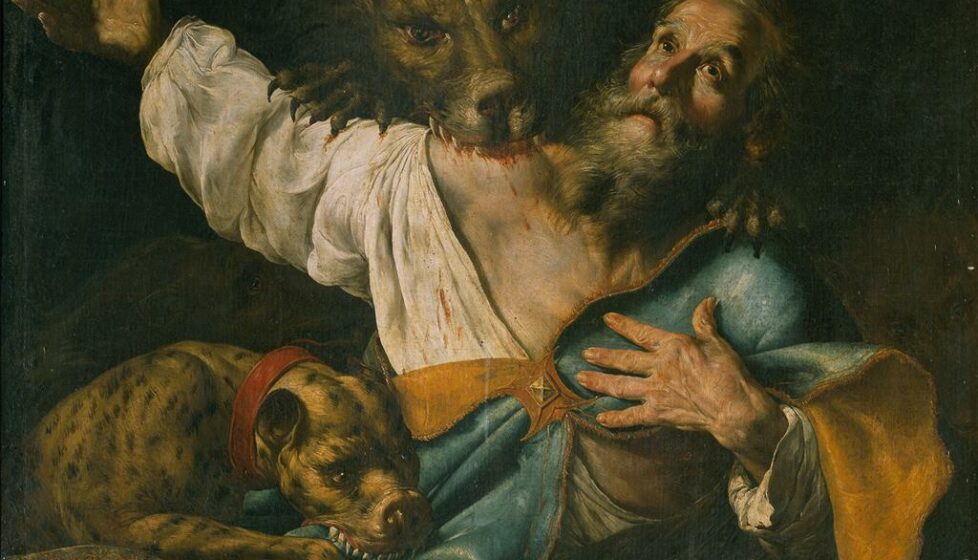Stories of Christian Martyrs: John and Betty Stam
China

Betty Stam held the baby in her arms, singing softly to this infant
child, all too aware that this was their last night together. Her
husband, John, tied to a bedpost, could not sleep either. Only
two weeks ago they had arrived at their mission station with three month-old Helen Priscilla, full of hope, eager for ministry. But on this
winter night, their quiet lullabies were parting sorrows, for tomorrow
they would die.
Betty Scott, daughter of Presbyterian missionaries to China, graduated from Moody Bible Institute in 1931. She had already accepted the
call of God to service with the China Inland Mission. The bond she felt
with John Stam, whom she had met at a prayer meeting for China, and
their mutual decision to serve Christ in the middle of a dangerous civil
war, could not—did not—hold her back. When she was assigned to a
mission station in the interior, she left for China. She wrote, “When we
consecrate ourselves to God, we think we are making a great sacrifice,
and doing lots for Him, when really we are only letting go some little
bitsy trinkets we have been grabbing; and when our hands are empty,
He fills them with His treasures.”
Stam, meanwhile, finished his training at Moody in 1932. He gave
the graduating class address that year, urging, “Dare we advance at God’s
command in face of the impossible?” In the fall he sailed for Shanghai,
expecting an assignment too dangerous for a family. He arrived to discover
that the Communists were gaining ground, missionaries were on the move,
and his beloved Betty, to his great surprise, was in Shanghai, recuperating
from illness. They were soon married, and in September 1934 their daughter Helen Priscilla was born. The young family moved to Anhui Province near the town of Ching-te. The local leader assured their safety.

It was a surprise to everyone when the town magistrate appeared at the
missionaries’ door only three months later to warn them of the approach
of Communist troops, but it was too late. Before the Stam family could get out, the troops got in. John was taken first, bound and pleading for the
safety of his wife and child. Soon the troops returned for them. That night
in jail, the baby cried. When guards threatened to kill her, an older Chinese
man, also a prisoner, intervened. Guards asked if he were so bold as to die
for the foreign baby; he assented. The man was hacked to death on the spot.
That night Stam was ordered to write to mission leaders, demanding
a $20,000 US ransom. He concluded the note, fully aware that ransoms
were never paid: “The Lord bless and guide you. As for us may God be
glorified, whether by life or by death.”
The next day soldiers marched the Stams to the nearby town of
Miaosheo, where they were placed in the office of the local postmaster,
who asked where they were going. By this time Stam must have known
the soldiers’ intentions, for he replied, “I don’t know where they are
going, but we are going to Heaven.”
The next morning, the Stams were led to their execution. A local
Christian doctor approached the soldiers to plead mercy for the missionaries. He was threatened, and John then pleaded for the doctor. The Communist leader had heard enough. He ordered John to kneel, and
with the flash of a sword decapitated the young missionary. Betty fell on
her husband’s body, and the sword fell again.
What then happened to baby Helen? A Chinese evangelist, Dr. Lo,
found her wrapped in a sleeping bag, with a change of clothes and money
pinned to her diaper. Betty, during her sleepless last night, had done her
best to comfort and care for the child she knew she was leaving behind.
Lo concealed the child in a rice basket and eventually brought Helen to
her grandparents, still serving in China. Helen became a teacher and
raised a family in the eastern United States. She chose a private life: no
interviews or public statements.
What happened to the church in China? In response to news of the
Stams’ deaths, several hundred new missionary recruits volunteered for
service. The Chinese church went underground for many years. Today
it is emerging, stronger than anyone expected; stronger than Mao’s
forces, whose day has already passed.
This story is an excerpt from Foxe: Voices of the Martyrs. You can get your own copy free with any donation to The Voice of the Martyrs.



 Guide
Guide